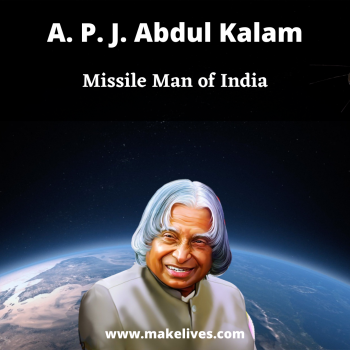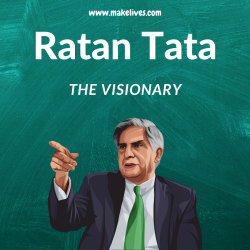While India is home to many brilliant minds, few have had as much of an impact on the world of science as Homi Jehangir Bhabha. Bhabha is widely recognized as the "father of the Indian nuclear program" for his groundbreaking work in atomic energy and theoretical physics. His pioneering work has had a profound impact on nuclear physics, as well as Indian science policy and the country's research infrastructure.
Bhabha was born into a Parsi household in Mumbai on October 30, 1909. He displayed an early interest in science. He started studying mechanical engineering at Cambridge University at his family's encouragement, but he quickly discovered that his genuine interest lay in theoretical physics. After earning a degree in engineering, he changed his concentration to physics and learned from industry veterans like Paul Dirac. During this period, Bhabha made significant contributions to the field, notably in cosmic rays and electron-positron scattering.

The year 1939 was a fortunate one for Bhabha's return to India. He eventually settled in India because returning to Europe during World War II would have been difficult. Bhabha was one of the driving forces behind the 1945 founding of the Tata Institute of Fundamental Research (TIFR) with funding from the Tata Trust after realizing the promise of atomic energy, especially for a country like India. High-quality basic science research quickly flocked to TIFR.
Bhabha was in a one-of-a-kind position when India gained its independence in 1947. He eventually became one of Prime Minister Jawaharlal Nehru's closest advisors. He successfully argued for government funding of atomic energy research because of its potential for bolstering national security. As a result, in 1954, Bhabha became the first secretary of the newly formed Department of Atomic Energy (DAE). The DAE flourished under his direction and is now India's primary nuclear research institution.
Bhabha had a two-pronged plan for nuclear power. First, he saw that it could be used for peaceful things like generating capacity, and he was all for tapping into that for the country's progress. As proof of this notion, in 1956, India built the 'Apsara' atomic research reactor.

Second, he appreciated the strategic value of nuclear power. While he consistently advocated for nuclear power's peaceful applications, he was aware of the potential impact it could have on international relations. Thanks to his planning, India now has a nuclear arsenal that can be used for both peaceful and potentially aggressive purposes.
Bhabha's impact went far beyond the realm of nuclear power. His overarching goal was to encourage a scientific mindset among Indians. He imagined a system in which basic research and practical applications mutually bolstered one another. This all-encompassing strategy spawned the development of numerous research institutions and the careers of many young scientists, guaranteeing the expansion of scientific inquiry and technological advancement in India.
Bhabha's life was tragically cut short in 1966 when his plane crashed over the Mont Blanc range in the Alps. He had only been 56 years old. His early demise was a significant loss to science and the country.

Nonetheless, Bhabha's legacy lives on. Thanks in large part to the groundwork he built, India is now a nuclear power, with both electricity-generating reactors and the capabilities for strategic deterrent. The Bhabha Atomic Research Centre (BARC, previously AEET) and the Tata Institute of Fundamental Research (TIFR) are only two of the many institutions he founded or influenced to become leaders in India's scientific community.
Bhabha had a particular idea that he wanted India to be like a technologically advanced, scientifically self-sufficient nation. Modern policymakers can learn from his emphasis on the necessity for a holistic approach to scientific research, which is grounded in his belief in the inextricable link between pure and applied science.
In sum, Homi Jehangir Bhabha was more than a scientist; he was a forward-thinking leader who saw the promise of atomic energy when few others did. He was one of the most influential figures in contemporary Indian history. His impact on the field of science in India has yet to be precedent. As India progresses in science and technology, Bhabha's legacy is a guiding light.
Comment













